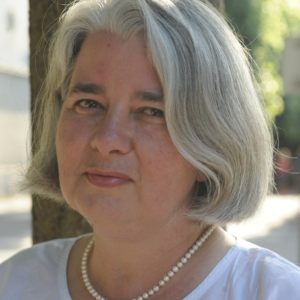June 23, 2021 (LifeSiteNews) — A nursing home for the elderly in Nivelles, Belgium, has lost 12 of its 121 residents to COVID-19 in less than a month, and two are still in critical condition. While 98 percent of the elderly inhabitants had been fully inoculated with both doses of the Pfizer experimental vaccine in January, no less than 55 of them tested positive in May for the coronavirus, and 52 of those were vaccinated. The home, “Nos Tayons” in the French-speaking part of Belgium, had not experienced previous waves of COVID contaminations since the beginning of the public health crisis last year.
According to press reports, all those who died had been vaccinated.
The numerous “breakthrough” contaminations and deaths — over 20 percent of those who tested positive did not survive — did not shake the confidence of the health care workers and managers of “Nos Tayons” in the vaccine. Colette Delmotte, head of the social services of Nivelles, went on record on Belgian television on June 7, when nine deaths had been registered, saying that the jabs had certainly prevented an even deadlier outcome, since about four fifths of the residents who tested positive for COVID had no symptoms or mild ones.
She stressed that vaccination does not necessarily prevent catching or transmitting the illness.
But more and more reports in Belgium are suggesting a third dose of the “vaccine” might now be called for.
Jean-Michel Dogné, an “expert in vaccine security” and the director of the pharmacy department at the University of Namur, explained that residents who are old and very frail can in certain cases “develop mild forms of the disease, and unfortunately these mild forms can be enough to lead to more serious consequences.”
At this point, it might seem reasonable to question the efficiency of the “vaccine,” as it does not stop the virus from circulating, as elderly people have weaker immune responses in any case, as even very mild forms of COVID-19 can kill those who are most frail.
But this did not happen. Instead, the health care workers in the nursing home are now a target, because only 60 percent of those who are in contact with the residents have received the shot. It appears that while the elderly patients all had the “Indian” or “Delta” variant of COVID, health care workers had the “British” variant, and clearly the contagion circuits were different for the two groups. It was definitely not the health care workers who contaminated their patients.
This did not prevent epidemiologist Antoine Flahault, who commented on the case for French media Atlantico on June 16, from suggesting that the number of victims was due to the fact that the younger generation had not received the jab. He also suggested that there should be mandatory vaccination for health care workers caring for the elderly and vulnerable populations (despite the fact that the COVID shots do not give certain protection against viral transmission).
The French magazine Marianne quoted Flahault’s recommendations and added that in France, health minister Olivier Véran recently made a “solemn appeal to unvaccinated health care workers” to take the jab. “60 percent of French adults have already received one injection, but less than 60 percent of care workers in homes for the dependent elderly have done so, that’s not justifiable,” he said. He threatened that if “between now and the end of summer, things were not to get better, then yes, we would pose the question of compulsory vaccination for these particular groups.”
Going back to mid-May reports on the Nivelles nursing home where so many vaccinated residents have died is quite revealing. At the time, the local press noted that a resident of the home had tested positive when he was taken to the hospital for other issues. He had no visible symptoms of COVID, nor did the other residents of “Nos Tayons.” Confinement measures were put in place immediately but at the time, social services director Colette Delmotte explained that thanks to the vaccine, the residents would be protected from “serious forms of the coronavirus.”
By May 30, a statement by Colette Delmotte on the website of the municipality of Nivelles stated that 55 out of the 121 residents had been contaminated with the Indian variant while 16 out of the 107 staff members, of whom 76 percent were vaccinated, had tested positive, mostly to the British variant. “It would therefore appear that two distinct origins must be considered: one for the residents, another for the personnel,” she wrote.
She added:
The vaccination in January 2021 was extremely effective as all residents and staff members are currently doing well. The degree of contagion of the Indian variant is very high, but the vaccination has protected our residents and staff members perfectly.
Twelve deaths later, her remarks sound particularly misguided. At least, the situation has not been concealed from the public, and an epidemiological investigation is under way. The inquiry will look at the conditions in which the “vaccines” had been stored and administered, and check the “emergency response” of the nursing home. “Patient zero” is not yet known.
On a more practical note, the quality of the air in “Nos Tayons” is being assessed. Ten days ago, air purifiers have been installed. This might have been a good idea from the start, instead of relying on an experimental jab whose efficacy and safety raises so many questions.
The residents of “Nos Tayons” are also receiving psychological counseling.
On the other hand, no particular treatment is being recommended for people who test positive for COVID-19. The Belgian Anti Poison Unit’s website has a page full of frightening warnings about the dangers of hydroxychloroquine — an approach that Didier Raoult, professor of infectiology at the IHU university hospital of Marseille, has repeatedly called crazy, since hydroxychloroquine is one of the most-prescribed drugs in the world, with very few side effects. Ivermectin, vitamin D, and other possible drugs and prophylactic substances are routinely disparaged by the authorities.



